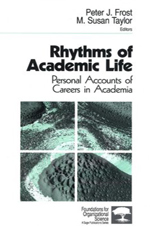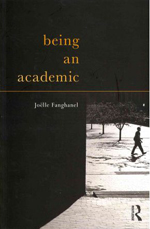Academic Research

Many students who pursue a doctorate in anthropology find work as independent consultants, researchers in public and private organisations, curators in museums, or lecturers at universities. Undertaking a PhD demands an enormous investment of time, self-discipline, economic and personal support. University positions are highly sought after, and it is usual for graduates to hold several short-term post-doctoral posts, or temporary lectureships, before securing a tenured position. Academic anthropologists give lectures and seminars, publish articles and books, undertake administrative tasks and pursue ongoing research. By doing a doctorate in anthropology you will gain highly specialised, advanced knowledge and research skills. These make anthropologists attractive to prospective employers other than universities; such as think-tanks, government bodies, international agencies or private organisations. Such organisations increasingly recognise the value of an anthropologist’s specific methods and questions, often alongside those of other disciplines. For success as an independent researcher or consultant, it is important to gain experience writing funding and grant proposals, as well as communicating the transferable skills gained during an advanced research degree.
While a PhD offers career opportunities not readily available to those with a Masters degree, work and voluntary experience outside a degree can also be important in finding employment in the applied sphere. Whether your career aims lie in this direction or in that of university-based teaching and research, it is useful to become a member of an established anthropological organisation, read its publications, and attend lectures and events in your areas of interest.
Recommended Resources
Films
How do anthropologists approach their research? In this short film, three members of MIT's Anthropology Department, Stefan Helmreich, Erica James, and Heather Paxson, talk about their current work and the process of doing fieldwork.
Books



Rhythms of Academic Life: Personal Accounts of Careers in Academia
Frost, P. (Sage Publications, 1996)
Auto-ethnographies: The Anthropology of Academic Practices
Meneley, A. and Young, D. (Broadview Press LTD, 2005)
Being an Academic
Fanchanel, J. (Routledge, 2011)
General
http://www.academicinfo.net/anth.html - an online education resource centre with extensive subject guides and distance learning information.
http://www.apprise.ox.ac.uk/index.html This website is for those who are studying for a doctorate, or who are in the early stages of developing a career beyond their PhD.
University websites often advertise academic positions within their own institutions.
Recruitment
http://aaanet.org/profdev/index.cfm -the American Anthropological Association’s Careers Centre lists jobs of interest to anthropologists.
http://www.jobs.ac.uk/categories/anthropology - a leading website listing academic and research posts in the UK and overseas.
http://www.academicjobseu.com/ - a website listing academic and research jobs in the European Union.
Professional Organisations, Associations, and Societies
The American Anthropological Association – the world’s largest association of individuals interested in the advancement of anthropology as the science that studies humankind in all its aspects, through archaeological, biological, ethnological, and linguistic research
The Association of Social Anthropologists of the UK and Commonwealth - The ASA aims to promote the study and teaching of social anthropology, to present the interests of social anthropology and to maintain its professional status.
The Economic and Social Research Council - The ESRC is the UK's leading agency for research funding and training in the economic and social sciences
The European Anthropological Association– a scientific organisation which aims to promote research and teaching in anthropology in the different European countries and to promote exchanges of information, workshops, scientific congresses, and schools at postgraduate level
The European Association of Social Anthropologists – a professional association open to all social anthropologists either qualified in, or working in, Europe.
The Royal Anthropological Institute of Great Britain and Ireland (RAI) - is the world's longest-established scholarly association dedicated to the furtherance of anthropology (the study of humankind) in its broadest and most inclusive sense.
World Council of Anthropological Associations (WCAA) - network of national and international associations that aims to promote worldwide communication and cooperation in anthropology

